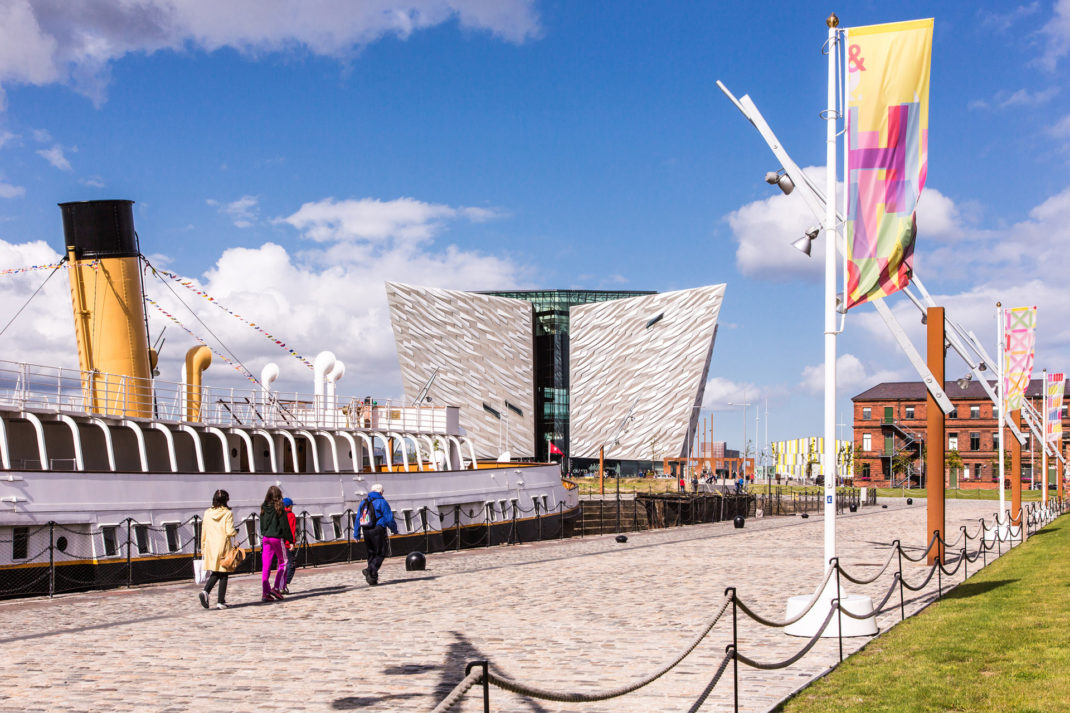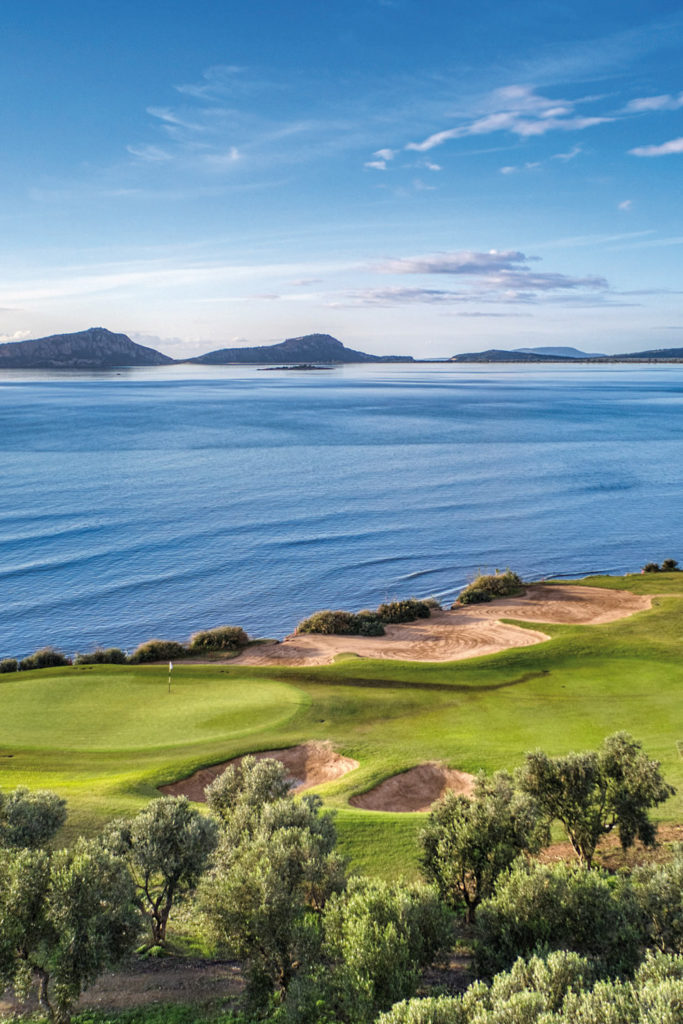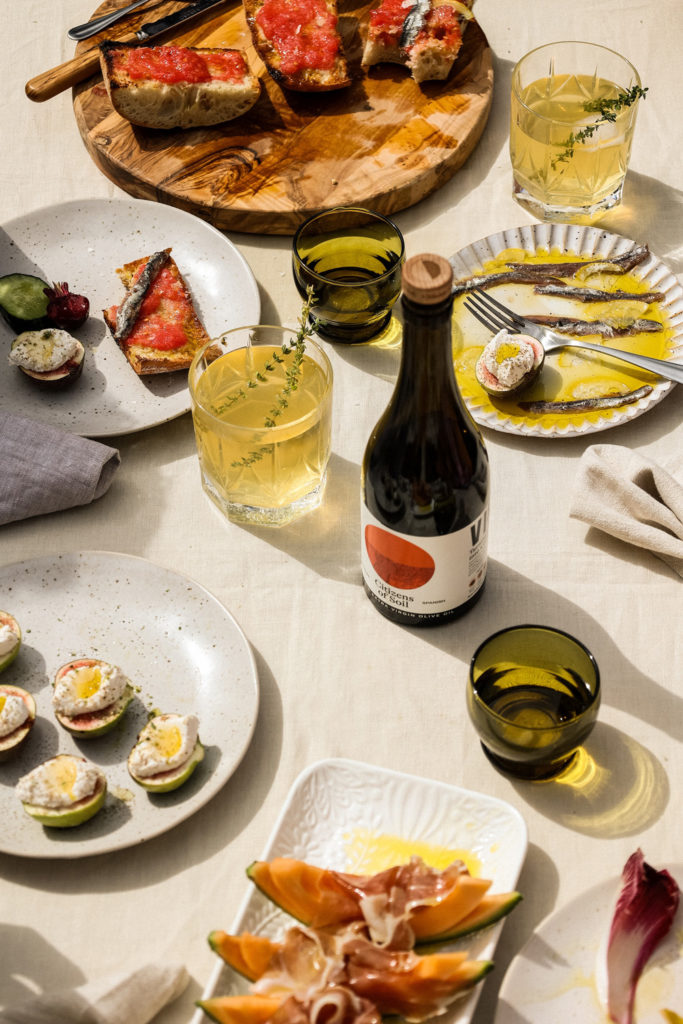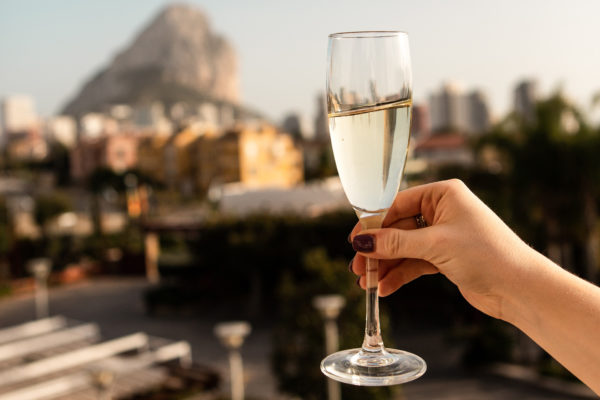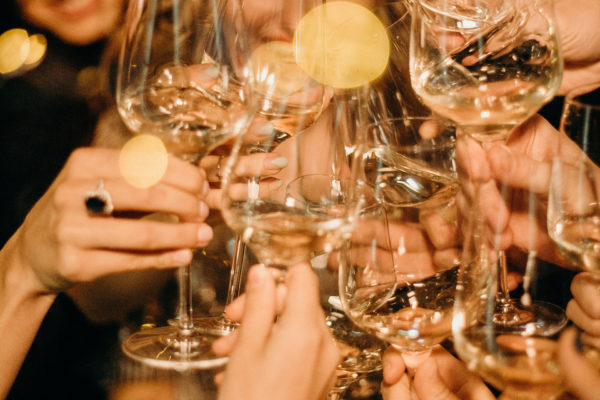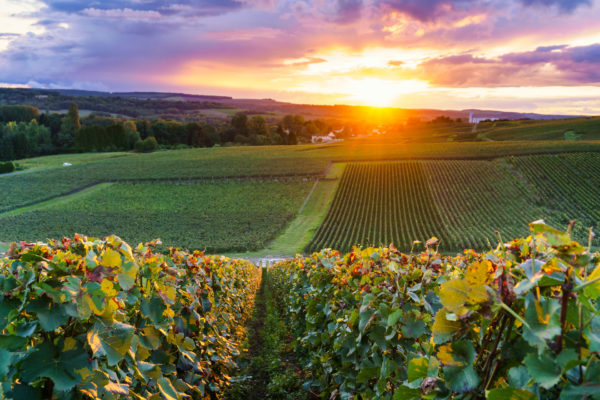How Louis Roederer Is Leading the Way In Sustainable Champagne
By
2 years ago
The seventh-generation family-run house has once again been named the world’s most admired champagne brand
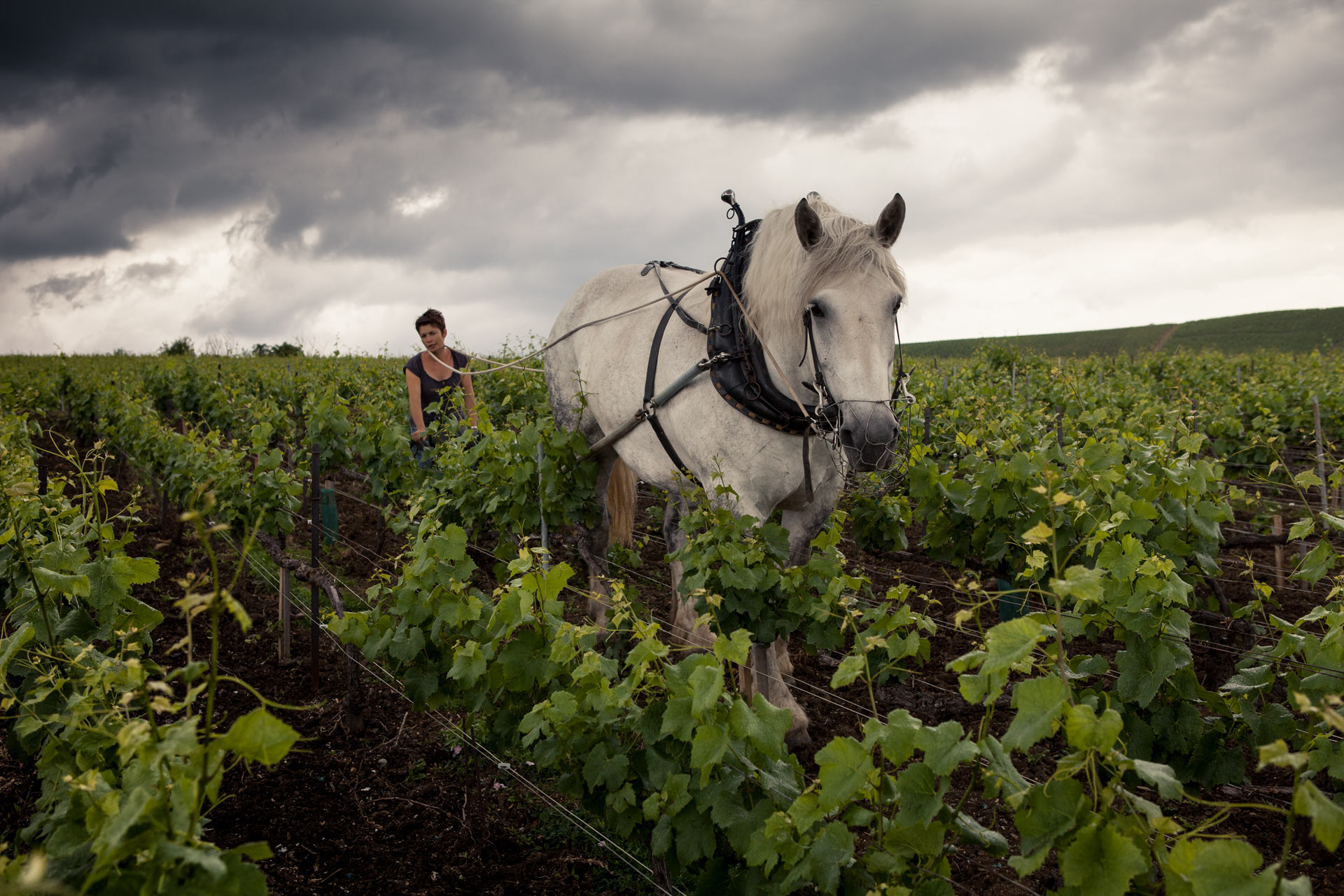
Founded 247 years ago, Louis Roederer is one of the last great, independent and family-run champagne houses in operation. Its story began all the way back in 1833, when the eponymous Louis Roederer inherited the estate from his uncle and the brand as we know it was born. It has been passed down through the family ever since, and is now helmed by Frédéric Rouzaud, who represents the seventh generation of the lineage.
Yet while its history is pivotal to Louis Roederer, its sights are firmly set on the future. The brand has long been a pioneer in eco-friendly champagne, having been engaged in what’s called ‘renaissance viticulture’ for over 20 years, using practices that are influenced by the permaculture model, which focuses on working in harmony with the living environment. Its efforts certainly haven’t gone unnoticed: Louis Roederer has won an endless stream of awards over the years, and has just been named the World’s Most Admired Champagne Brand for the fourth year running. So: what’s behind its long-lasting success?
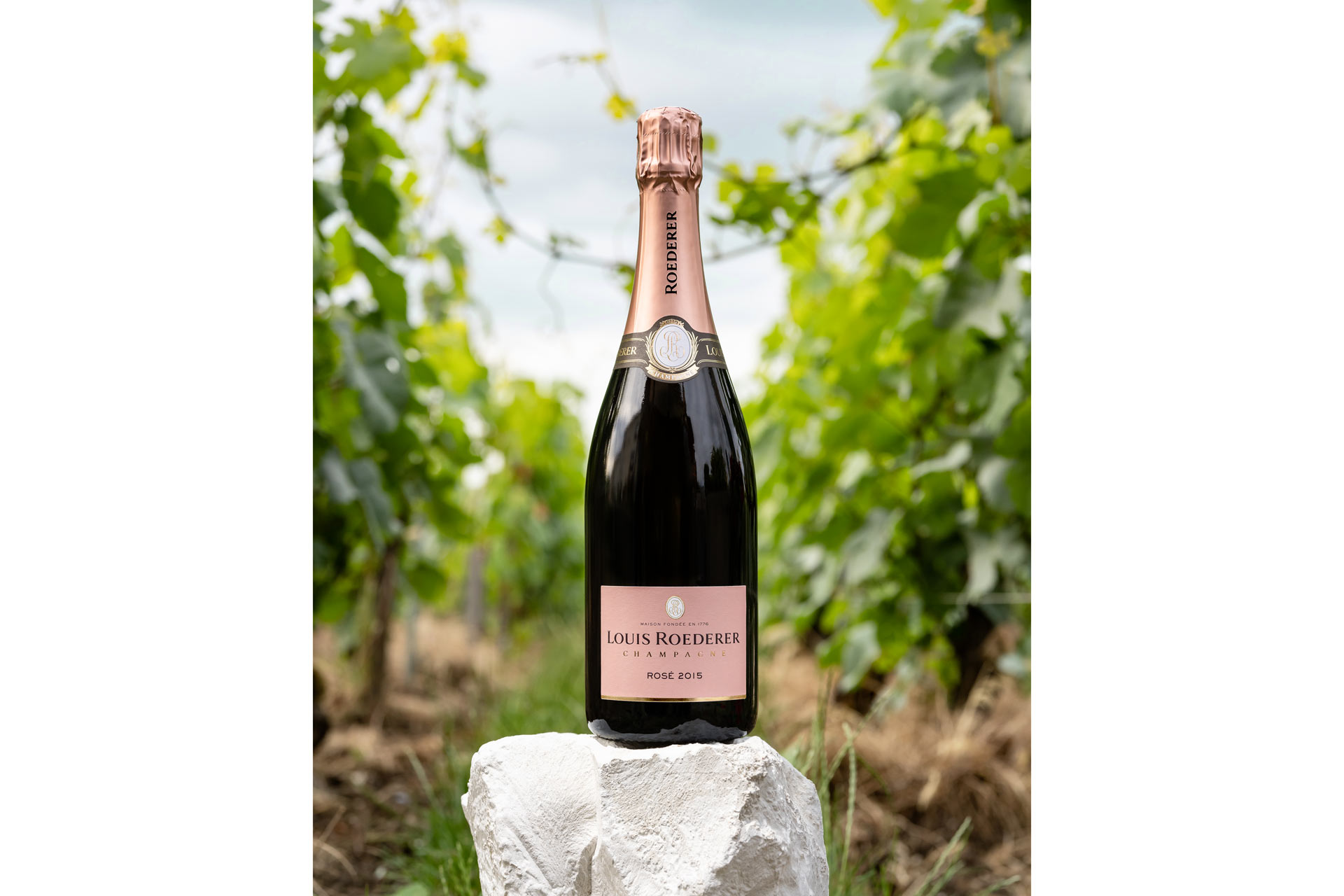
A Pioneering Spirit
The brand has demonstrated an innovative approach to champagne ever since its beginnings. Soon after taking over the champagne house, Roederer began buying vineyards – a stark contrast to contemporary practices at the time, and indeed still fairly unique in the industry today, with most producers buying grapes from small growers. This method gave him more control over the quality of his grapes, and paved the way for a new style of winemaking – one that was guided by a fundamental principle: that all great wine depends on the quality of the soil.
By the 1870s, Roederer was exporting his champagne to the US and Russia – and in 1876, the brand created what became the house’s most famous wine, designed to satisfy the tastes of Tsar Alexander II. This was the very first Cuvée de Prestige, a sweet champagne named ‘Cristal’ after the precious material in which it was bottled.
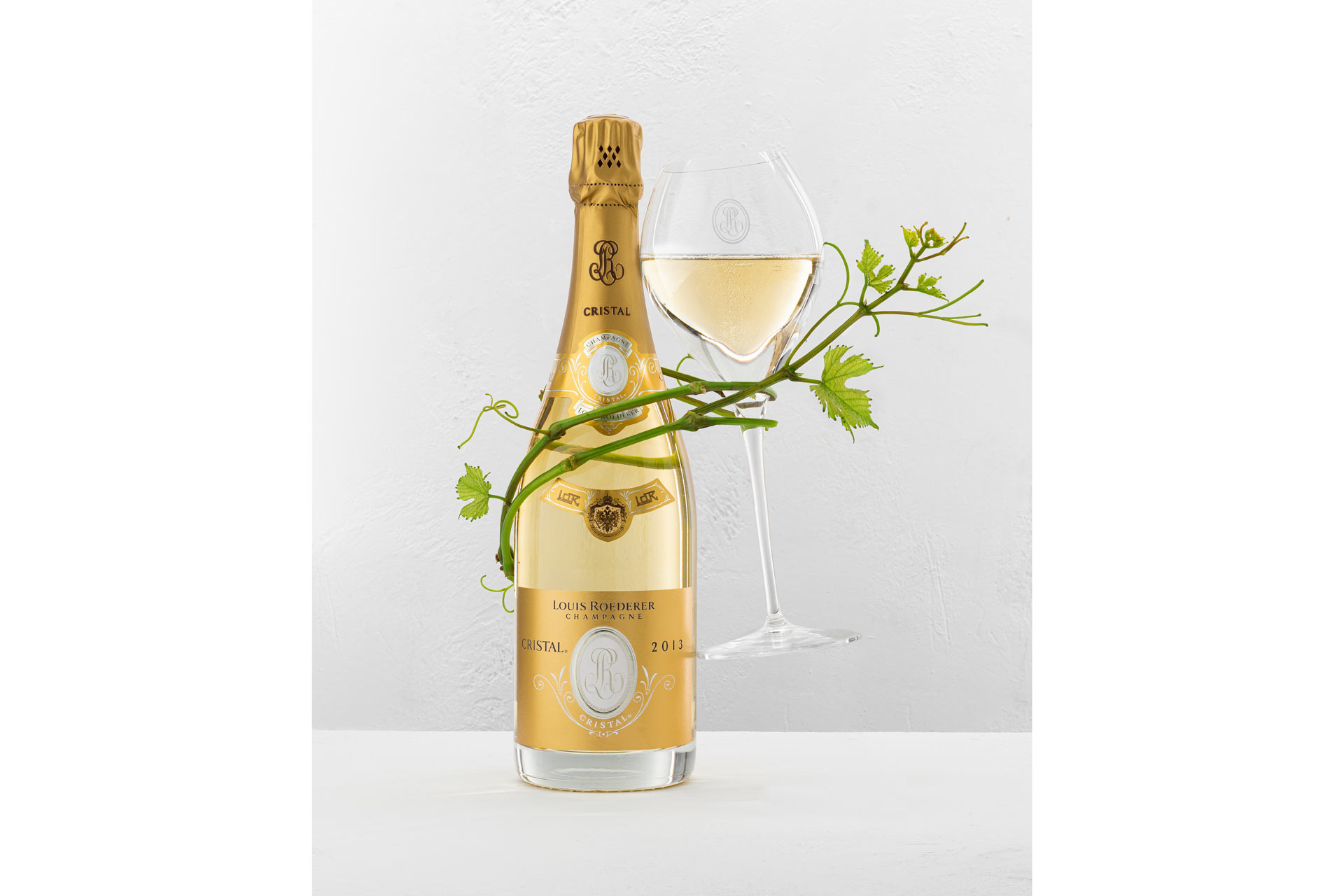
Later, in the 1920s, future heir to the House Léon Olry-Roederer continued this boundary-pushing spirit by focusing his attention on creating a highly balanced wine: a blend of several vintages, to ensure his wine would always be of the utmost quality. This formed the basis of the later non vintage cuvée named Brut Premier.
Eco-Friendly Practices
For the past few decades, Louis Roederer has focused its efforts on a strong commitment to sustainable practices. After taking over the company in 2006, Rouzaud implemented a biodynamic farming process – and now 155 hectares of the brand’s vineyards are certified organic and farmed using biodynamic principles (the remaining land is farmed using the same methods, but it is not yet certified). And, impressively, the entire estate is sustainably certified Haute Valeur Environnementale Level 3 (High Environmental Value) – the highest level available, awarded on factors like biodiversity, fertilization, phytosanitary protection and water management.
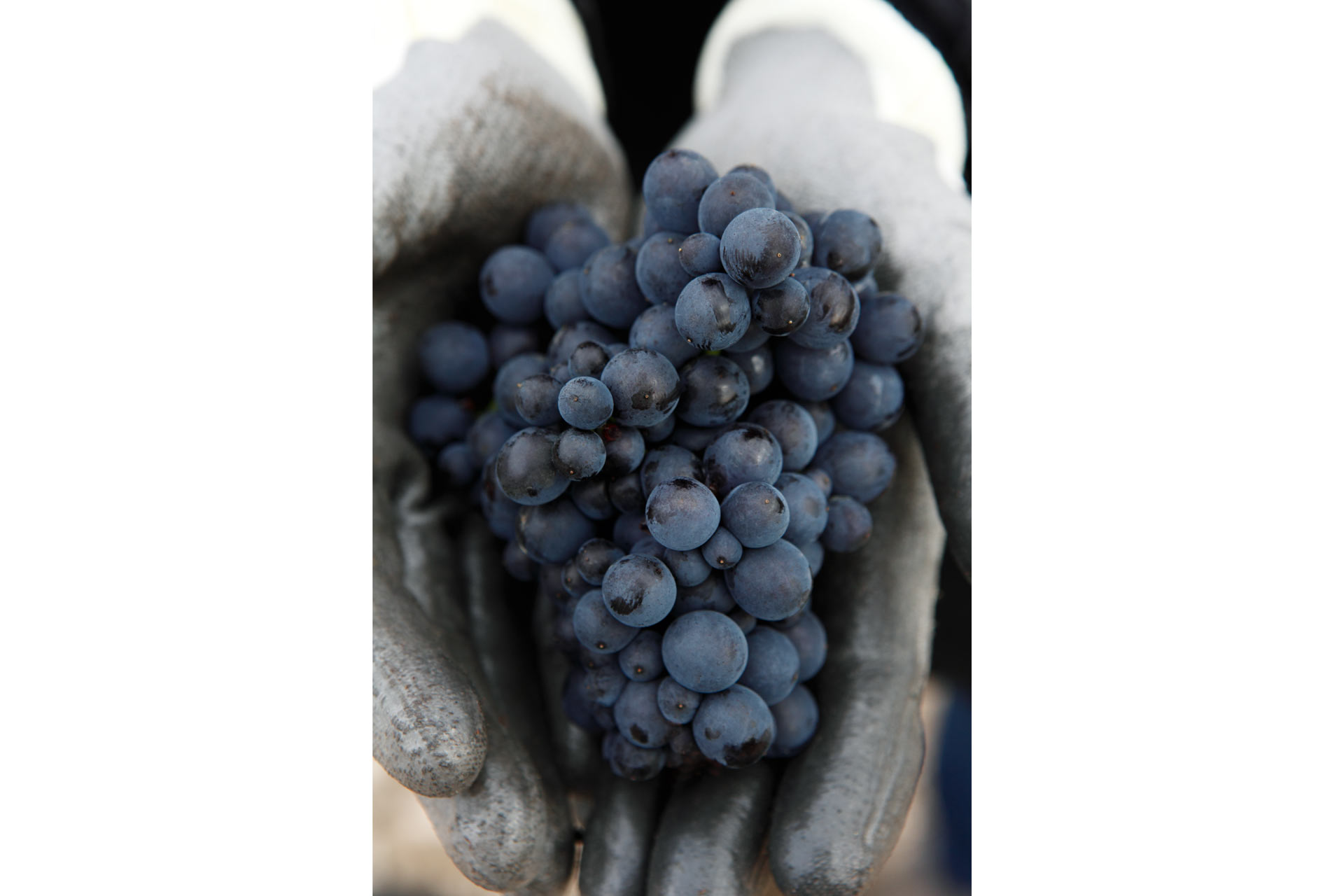
It doesn’t stop at the farming methods, either: green practices are visible throughout the entire production process. Gift boxes are made from eco-friendly packaging, and cellophane is no longer used, except for when it comes to Cristal, which now uses compostable cellophane made from cellulose and paper. The carbon footprint per bottle has been reduced by 25 percent in the last 10 years – a statistic the company is continually striving to bring down further – and 90 percent of waste in the business is recycled.
Viticultural Research
Not one to rest on its laurels, Louis Roederer is constantly looking to push education surrounding champagne forwards. In the early 2000s, the brand established a ‘research vineyard’: 10 hectares of grapes used for experimental farming. Then, in 2013, the company bought a site in Bouleuse near Reims, where it planted new rootstocks, creating a space where they could plant young vines that were entirely grown on their own sites. All its findings are shared with the Comité de Champagne in a bid to help other growers improve their environmental practices and ultimately create a better future for champagne.
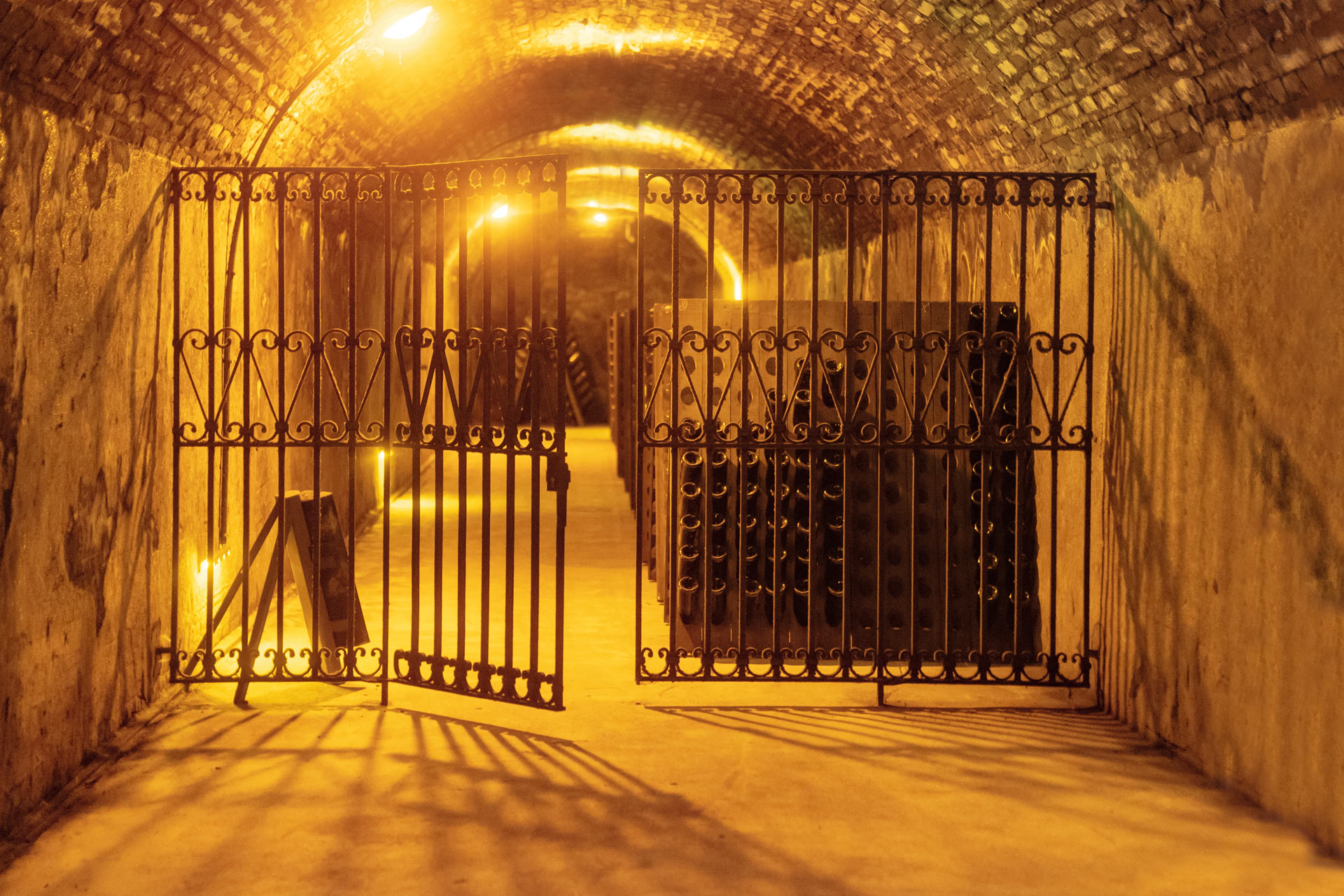
Collection
The result of all this? A new multi-vintage blend called Collection. Launched last year, Collection 243 (marking the 243rd blend created by the champagne house since its creation in 1776) is an embodiment of Louis Roederer’s ability to evolve its wines to resonate with today’s times.
To create Collection, Louis Roederer has taken the fine art of plot selection to new heights, selecting the vineyard plots that are perfectly suited to the identity of the wine and the most appropriate for the year’s specific blend. Each bunch of grapes is carefully selected both upstream (in the vineyards) and downstream, at the time of harvesting and pressing.
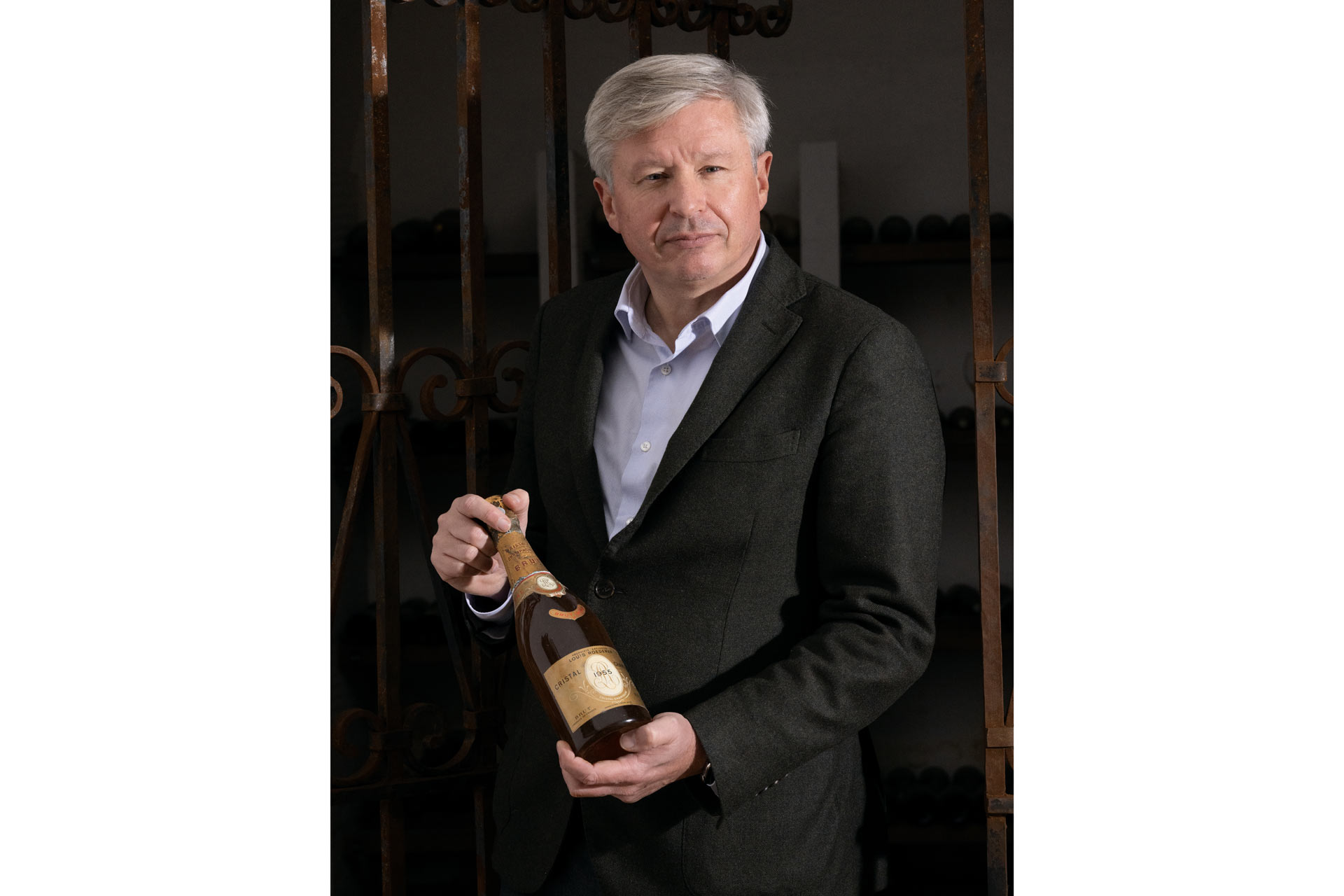
Jean-Baptiste Lécaillon
‘Collection is based on a selection of plots located in the heart of the Champagne region that are best suited to its identity,’ says Cellar Master Jean-Baptiste Lécaillon. ‘The grapes are grown using sustainable methods that preserve the vine and undergo a meticulous selection to retain only those of excellent quality. Current times, climate change and the importance of practising sustainable viticulture have given us the impetus to take the quality of our blends to the next level and allowed us to take a bold and uninhibited approach.’
Striking Gold
With all these sparkling credentials and initiatives, it’s no surprise Louis Roederer has a plethora of awards under its belt. Last year the champagne house won the Golden Vines Gucci Sustainability Award, a prestigious accolade often billed as the Oscars of the wine world. It has also been crowned the most admired champagne brand in the world for four consecutive years, an award decided by Drinks International. Each year, the magazine brings together over 300 sommeliers, wine writers and experts, tasking them with putting together a list of the most esteemed champagne producers.
The Final Word
In the current climate, all companies are trying to up their green efforts, but only a small handful really place the future of our planet front and centre – and these are the ones we should be shouting about and supporting. Across two centuries, Louis Roederer has bubbled to the top of its field by trailblazing new methods of winemaking, constantly working to create champagne which not only tastes great, but respects the natural world. As Rouzaud puts it: ‘We are in awe of nature’s magic, and we strive to serve her as best we can in order to reproduce some of this magic in our wines.’
Find out more and shop the brand at louis-roederer.com

